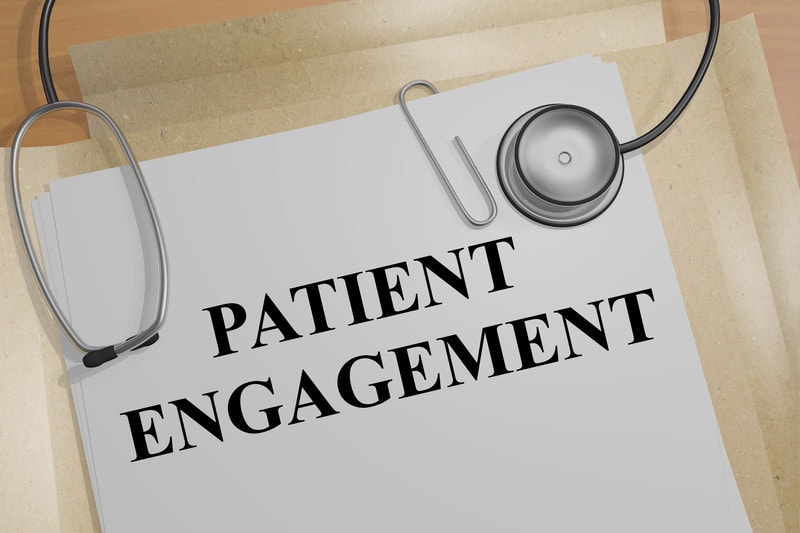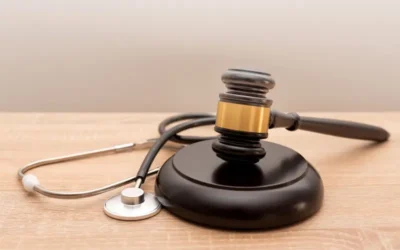In the present digital age, the adoption of Electronic Health Records (EHRs) in the U.S healthcare system has bettered the overall operational efficiency of healthcare providers. However, a question mark looms regarding EHRs’ impact on delivering enhanced patient care. As healthcare providers are already aware of, EHRs were originally designed to improve care quality, communication and actively involve patients in this new healthcare journey. Even in the face of existing concerns with interoperability and hybrid medical records (paper-based and electronic ones), stakeholders in the industry believe that EHR systems have made processes such as medical records review easier overall. However, are EHRs meeting the objective of enhancing patient engagement? The reality seems more complex than actually perceived, and it is critical to assess both the successes and shortcomings of EHRs in achieving the desired objectives.
Patient Engagement in Healthcare
Patient engagement is a crucial aspect in the modern, value-based care system as patients are encouraged to be proactive with their role in personal health management. This can include inviting patients to have an open communication with their healthcare providers, providing access to their health data and having them participate in decisions regarding their treatment.
This helps with better health outcomes, enhanced patient-care and subsequently, lower healthcare costs. As healthcare providers, you are tasked with not only incorporating the technology to optimize operational activities but also ensuring a collaborative environment with your patients, thereby striving towards delivering better patient care.
Enhance Your Patient Data Management
MOS provides value-added medical record review services for physicians.
The Positives: How EHRs Are Enhancing Patient Engagement
The Covid-19 pandemic has helped shine a spotlight on the untapped potential of adopting advanced technologies for remote patient engagement. The integration of tele-health and other digital technologies has emphasized the unique role EHRs play in addressing health problems, electronically. Regardless, EHRs were developed with several features aimed at improving patient engagement including:
- Interactive Patient Platforms: EHR systems normally have a centralized platform where patients can access their medical records, view test results, schedule appointments and engage with their providers.
- Access to Personal Medical Information: With instant access to their health information at their fingertips, patients can now take control of their health and make informed decisions.
- Real-time Communication: Through EHRs’ secure messaging systems, patients can now engage in real-time conversations with their healthcare providers thereby, ensuring continuity of care and avoiding frequent hospital visits.
The Challenges: Where EHRs Are Falling Short
While EHRs provide numerous advantages in enhancing overall patient-provider experience, the real-world challenges are as follows:
- Underutilization and Accessibility Issues: Although EHRs are widely accepted, there is still a gap between patients and EHR portals, in terms of usability and accessibility. A 2022 study by Kaiser Family Foundation found that only around one-third of U.S adults regularly use patient portals, owing to the lack of proper infrastructure, especially in the rural areas. Meanwhile for other patients, even though the percentage is low, there are a few who find navigating EHRs to be cumbersome and confusing.
- Health Data Overload and Complexity: With EHRs streamlining health data, it still can pose problems for some patients. The sheer volume of data presented in clinical language can be overwhelming for certain users to get around. This in turn, will require healthcare providers to help interpret the lab results, clinical notes etc. which they do not have the time and resources to thoroughly explain, making the experience even more exhausting.
- Restricted Two-way Communication: While EHRs provide real-time communication tools, sometimes, patients feel disconnected from their healthcare providers due to the limitations of EHRs. Apart from reports of lack of responsiveness or feel of interactions through these tools, messages at times, are automated or sent by the staff leading to a dent in the sense of personal interaction with their healthcare provider.
EHRs and Liability in Patient Management
The adoption of EHRs brings several legal considerations regarding confidentiality, security and informed consent that the healthcare providers should be mindful about.
- HIPAA Compliance: All healthcare providers must adhere to the HIPAA, which governs the protection of Patient Health Information, including e-data. The providers must ensure the following:
- Confidentiality: Access to sensitive patient data is limited to authorized individuals, and patients must be duly informed regarding who has access to the respective information.
- Data Security: It is mandatory for EHR systems to have secured encryption, private access controls and regular audits to safeguard the data from phishing or any unauthorized access.
- Patient Access Rights: Under HIPAA, patients hold all rights to access their health records at any time. Therefore, healthcare providers must:
- Facilitate access: Patients should be able to easily access their medical records through EHR, either directly through the platform or via formal requests.
- Provide prompt responses: Providers must respond to the patient’s access requests, ideally within 30 days, complying with the federal regulations.
- Informed Consent:
- Establishing Communication: EHRs provide complex medical data to the patients, and healthcare providers must ensure that patients fully comprehend this information, especially when making treatment decisions.
- Proper Documentation: All discussions regarding the patient’s health or treatment procedures, and patient consent should be documented within the EHR to avoid any future disputes.
EHRs: A Work in Progress
Patient data needs to be made accessible to authorized entities because this is important from the point of view of proper care provision as well as from that of claims settlement and medical litigation. Unhindered availability of the medical documentation would facilitate medical peer review, and processes such as medical record analysis that is very important in personal injury litigation. Most importantly, improved EHR patient data access would ensure improved patient engagement and also enable shared decision-making between providers and patients.
EHRs have certainly made inroads towards the betterment of patient-practice engagement, but they are still far from perfect. They have made patient data more accessible, improved patient-provider communication and collaborative decision making. At the same time, challenges regarding data complexity, limited two-way communication, data security and foolproof legal compliance still remain as obstacles that healthcare providers and patients must navigate together.
Both patients and healthcare providers should engage proactively in utilizing the system to its fullest potential, to mitigate the challenges and meet the ultimate objective of enhancing patient engagement. Through regular training, improvements and integration with modern technologies, EHRs can evolve into a complete tool that fosters patient management, with a focus on delivering improved care outcomes and patient satisfaction.
Looking for value-added electronic health record review services?
MOS provides customized solutions perfect for your needs.




